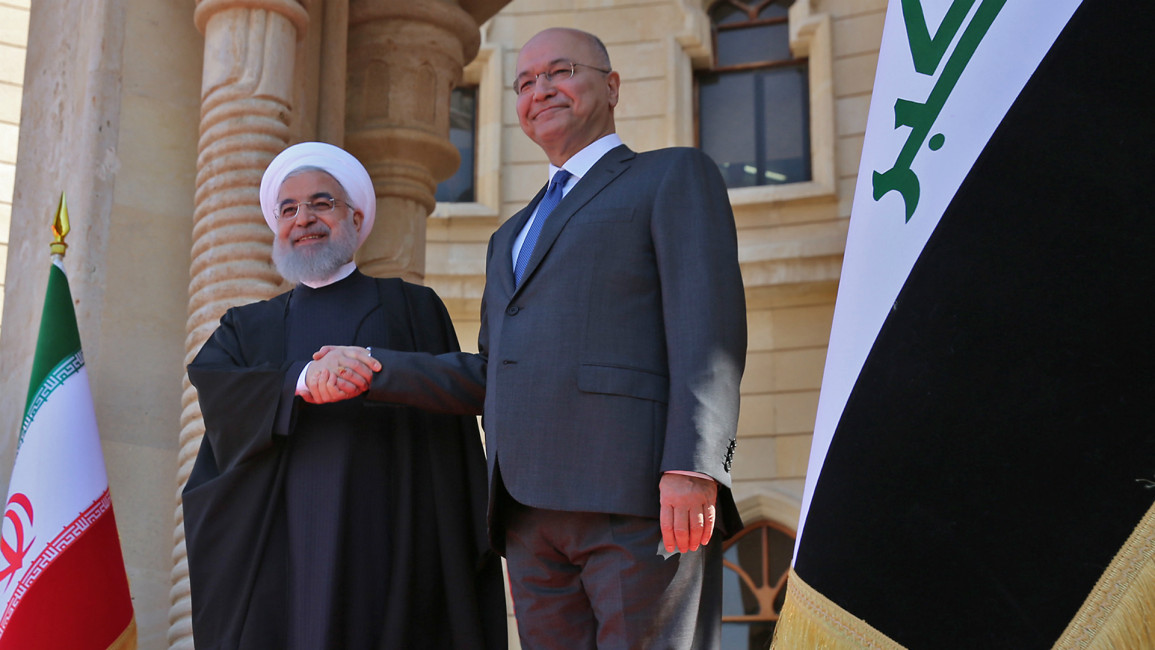Iraq must not be dragged into another regional war: president
"We have had four decades of challenge and turmoil. We do not want to be embroiled in another war," he said at Chatham House, the Royal Institute of International Affairs think-tank in London.
"We cannot afford our country to be dragged into conflict."
With tensions high between Iran and the United States, Saleh insisted his country would not become "a staging post for belligerents".
"We are asking everybody to cool it down... enough is enough," he said.
"We do not want to be a victim of a conflict in Middle East. We have not finished the last one," the Iraqi president added, referring to the US-led war on terror and battle against the Islamic State jihadist group.
"It is in our national interests to have good relationship with Iran," he said, whilst adding: "The US is a very important partner for Iraq."
Saleh, who took office in October, said Baghdad's priority was "stability".
"We need to transform Iraq from a zone of regional and proxy conflict into a zone of trade, infrastructure development, and jobs and a future for young people," the 58-year-old said.
Saleh visited British Prime Minister Theresa May on Tuesday for talks on security cooperation and nation-building.
May said Britain "stood ready to provide further support" to the Iraqi and Kurdish security forces, her Downing Street office said.
The current regional crisis is rooted in the US withdrawal last year from the 2015 nuclear deal between Tehran and world powers. Washington subsequently re-imposed sanctions on Iran, sending its economy into freefall and cutting deeply into its oil exports.
Like neighbouring Iran, Iraq is a Shia-majority country, and has been trying to maintain a fine line between allies Tehran and Washington. There have been concerns that Baghdad could once again get caught in the middle, just as it is on the path to recovery.
Iraq hosts more than 5,000 US troops, and is home to powerful Iranian-backed militias, some of whom want those US forces to leave.
US assets in Iraq have been repeatedly hit in recent weeks, forcing American companies and contractors to pull their employees for security reasons.
No group has claimed the attacks, but experts say they appear to have been fired from Shia-majority areas north of Baghdad.
That would appear to implicate pro-Iranian Shia armed groups, as opposed to Sunni jihadists who continue to carry out hit-and-run attacks despite the elimination of the Islamic State group's "caliphate".
Prime Minister Adel Abdel Mahdi has ordered all forces to “take all necessary measures" to prevent further rocket attacks, noting "these actions disrupt the political situation and give a distorted picture of the security situation," he said.
Follow us on Twitter: @The_NewArab



